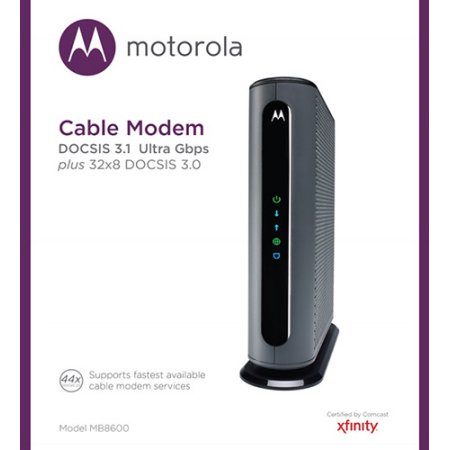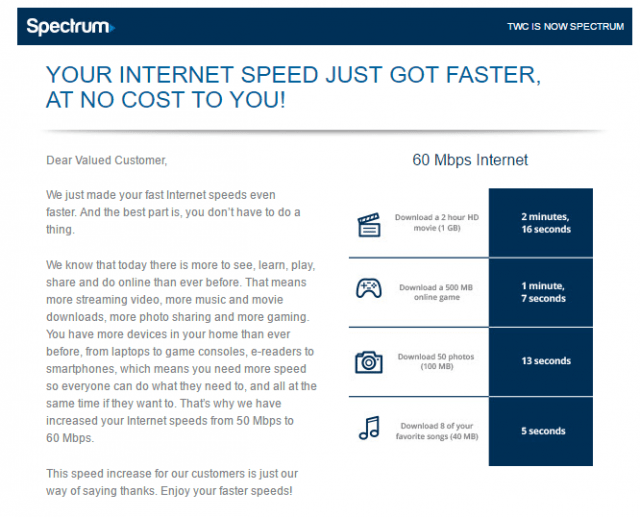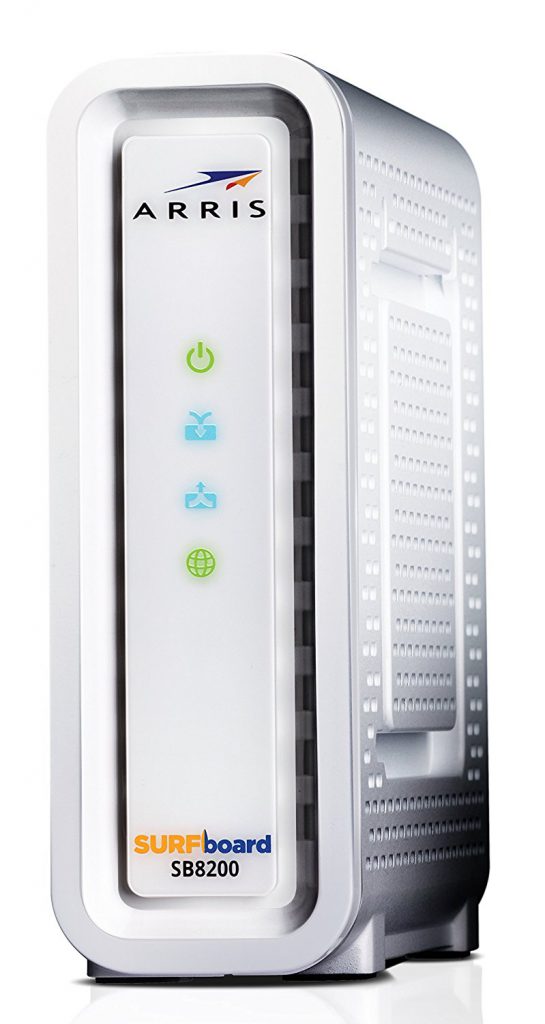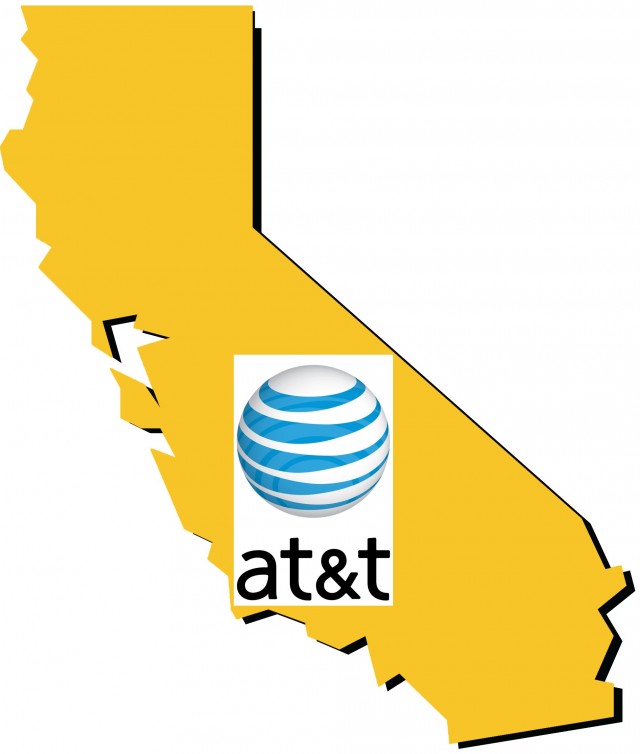Zoom Telephonics will introduce its first full-featured DOCSIS 3.1 modem for broadband consumers later this month at a price of $159.99.
The Motorola MB8600 includes four GigE LAN ports with support for bonding to allow for delivered speeds of up to 4Gbps and includes Broadcom’s Full-Band Capture (FBC) digital tuning, which supports future IPTV applications.
Zoom licensed the Motorola brand name for broadband-related equipment and is hoping to grab more market share in a field dominated by more familiar brands including Arris, Ubee, and Netgear.
The unit is backwards-compatible with DOCSIS 3.0 and includes support for up to 32×8 DOCSIS 3 channels, which some cable operators are using to provide gigabit speeds.
The full feature set:
- DOCSIS 3.1 with fallback to 32×8 DOCSIS 3.0
- Full-band Capture Digital Tuning enhances speed and saves energy
- Works with any router, Windows or Mac computer, HDTV, or game station that has an Ethernet port
- This DOCSIS 3.1 modem supports Active Queue Management (AQM), which significantly reduces Internet latency.
- 4 GigE Ethernet ports with support for port bonding
- Vertical case saves space and enhances cooling
- High resistance to lightning and to power surges
- Future proof, including DOCSIS 3.1, DOCSIS 3.0
- 2 year warranty
- IPv6 next generation Internet addressing support
- Multi Processor Technology with ARM based Application Processor
The box comes pre-branded with Comcast’s XFINITY logo, which means it is a sure bet Comcast will support this modem. Consumers should verify if other cable operators will approve use of this modem before buying. It will be available for retail online sale by Walmart, Amazon.com, Target, Best Buy and MicroCenter as early as late May.


 Subscribe
Subscribe




